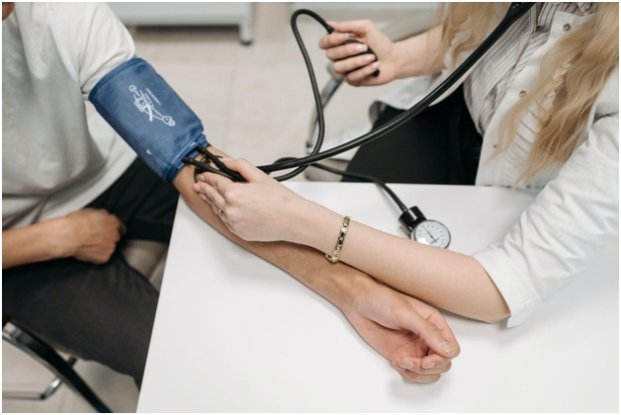If you suffer from resistant hypertension, it might feel like you have tried everything to get your blood pressure under control. If you are taking multiple blood pressure medicines and your blood pressure is still high, it might be a good idea to check out a new option. Increasing medication with no results tends to just lead to an inability to adhere to the treatment plan.

Resistant hypertension
Resistant hypertension is the inability to lower blood pressure despite multiple prescriptions. Blood pressure is the force as blood pushes into the artery wall. Blood pressure is regulated with the fluid and salt in your body. When your body struggles to regulate that, it can cause high blood pressure. Any pressure at 130/80 or higher during an average day is considered hypertension. Hypertension makes the heart work harder to pump the blood through the body. It can also damage the arteries.
When hypertension is treated with multiple prescriptions and it is still not decreasing, or below the target, it is considered resistant hypertension. Typically, this includes having three or more different prescriptions to help regulate it. One prescription should also be a diuretic, which removes the fluid and salt. For more information on what is considered resistant hypertension, check out this website.
When lifestyle changes and medications don’t help lower high blood pressure, secondary causes might need to be examined and treated to alleviate the high blood pressure. When the causes of high blood pressure, and the secondary causes of resistant hypertension are understood, treatments for the secondary cause could lower blood pressure efficiently.
What Causes Resistant Hypertension
Hypertension is typically called by a diet that is high in fat, cholesterol, and salt. For some, genetics will play a part in how well your body regulates blood pressure. Other chronic diseases, such as high cholesterol, diabetes, and kidney or hormone issues can contribute to high blood pressure. Other lifestyle factors can contribute to hypertension, like smoking, excessive alcohol-consumption, and excessive eating. Sleep Apnea also
When lifestyle changes don’t change your blood pressure, medications could be necessary. After the administration of medication, if your blood pressure still doesn’t improve, it might be resistant. People who are older, have diabetes, or who have kidney problems are more likely to develop hypertension resistance. Another cause is use of painkillers, contraceptives, and decongestants.
Treatments of high blood pressure don’t work until certain secondary causes are addressed. For certain secondary causes, check out https://my.clevelandclinic.org/health/diseases/15601-resistant-hypertension.
One common secondary cause of resistant hypertension is called primary aldosteronism.
What is Primary Aldosteronism
One of the main secondary causes of resistant hypertension is when the adrenal gland produces an excess amount of hormones. When the adrenal glands produce too much aldosterone, your body holds on to water, which causes blood pressure to increase. Primary aldosteronism can also lead to fatigue, muscle weakness, headaches, and numbness.
Primary aldosteronism most likely affects millions of people who suffer from resistant hypertension. Since it is a syndrome, it can be commonly misdiagnosed or missed. There are so many different signs and symptoms that can confuse a primary aldosteronism diagnosis.
Primary Aldosteronism is a common cause of heart failure and strokes. While high blood pressure can cause a lot of these issues, primary aldosteronism has been linked to increased chances of organ failure.
Treatment
In order to treat resistant hypertension, treatment of the underlying cause is the only way to lower blood pressure. If resistant hypertension is caused by an imbalance of aldosterone in the body, regulation of that hormone can significantly decrease blood pressure.
A new drug study has found significant results in the regulation of the aldosterone hormone in the adrenal glands. The clinical trials for CIN- 107 showed lowered aldosterone without affecting the cortisol levels. The trials are currently in phase two for treatment for both primary aldosterone and resistant hypertension. It is also being developed in diseases where aldosterone levels can play a role, such as kidney disease.
Treatment of secondary causes are the most effective way to handle resistant hypertension. Increasing medication usage results in nonadherence to their treatment plan. Complex medication regimens, increased side effects, and costs are common reasons for patients not sticking with their treatment plans. Approximately 40 percent of patients with hypertension will struggle with adherence to their treatment plan.
Adding more drugs to your hypertension treatment is not always the most efficient way to handle your diagnosis. After 4 different medications with no improvement, looking at secondary causes for resistant hypertension is probably the best course of action. Instead of trying to treat the blood pressure, it is helpful to find the cause of the high blood pressure, and why your body is resistant to medications. These secondary causes for your high blood pressure can keep your blood pressure from being regulated and also cause more health problems.

